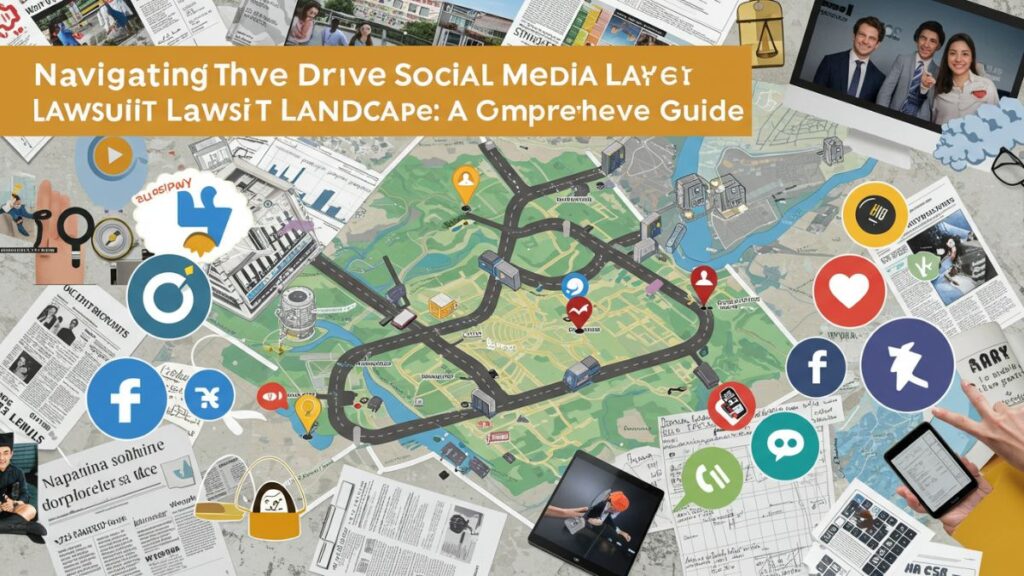In recent years, the term drive social media lawsuit has entered legal and public discourse as individuals and organizations pursue actionable claims arising from online interactions. Understanding the drivers, legal foundations, and preventive measures behind a drive social media lawsuits is essential for brands, influencers, and everyday users. This article will unpack what constitutes a drive social media lawsuits, explore why such cases are on the rise, and offer actionable advice to minimize your risk.
What Is a Drive Social Media Lawsuit?
A drive social media lawsuit occurs when a party initiates legal action based on content or conduct on social platforms. These lawsuits can stem from defamation, privacy breaches, intellectual property infringement, or harassment. By labeling these cases as “drive,” we emphasize the accelerating frequency and momentum of litigation driven by widespread social media use.
The Legal Definition
-
Defamation: False statements that harm reputation
-
Privacy Violation: Unauthorized sharing of personal data
-
IP Infringement: Unlicensed use of copyrighted or trademarked material
-
Harassment: Persistent or severe online bullying
Why Are Drive Social Media Lawsuits Increasing?
Recent trends indicate a surge in drive social media lawsuit filings worldwide. Several factors contribute to this uptick:
-
Higher User Engagement: Billions of users generate unprecedented content daily.
-
Stronger Privacy Expectations: Users and regulators demand tighter controls over personal information.
-
Evolving Legal Precedents: Courts are clarifying platform liabilities, encouraging more suits.
-
Commercial Stakes: Brands face financial risks if negative posts go unaddressed.
Key Types of Drive Social Media Lawsuits
Defamation Actions
When individuals or brands publish false, injurious claims, plaintiffs may file a drive social media lawsuit for defamation. Success hinges on proving falsity, harm, and lack of privilege.
Privacy Breach Claims
A drive social media lawsuits over privacy may arise if private messages, images, or data are exposed without consent. Courts examine whether the disclosed materials were reasonably expected to remain confidential.
Intellectual Property Disputes
Sharing copyrighted songs, videos, or images without permission often triggers a drive social media lawsuits for infringement. Platforms and users alike can face liability under digital copyright laws.
Harassment and Cyberbullying Cases
Plaintiffs who suffer repeated cyberharassment may pursue a drive social media lawsuit under anti-harassment statutes. Documentation of threats or abusive messaging is critical evidence.
Legal Foundation: Section 230 and Beyond
Section 230 Immunity
Under Section 230 of the Communications Decency Act, platforms generally enjoy immunity for user-generated content. However, this shield is not absolute and faces growing legislative challenges.
Carve-Outs and Exceptions
Recent amendments and court rulings have limited immunity for cases involving sex trafficking, terrorism content, and intellectual property, thereby fueling the rise of a drive social media lawsuist.
How to Prepare for a Potential Drive Social Media Lawsuit
Conduct Regular Audits
-
Content Review: Periodically review your public posts and comments.
-
Privacy Settings: Ensure personal data is protected by the strictest settings.
Develop Clear Policies
-
User Guidelines: Publish and enforce community standards.
-
Takedown Procedures: Implement a swift response plan for harmful or infringing content.
Train Your Team
Educate employees and influencers on legal risks associated with social media. Clear guidelines can prevent actions that might trigger a drive social media lawsuits.
Best Practices for Individuals and Businesses
-
Verify Before You Share: Double‑check facts and sources to avoid defamation.
-
Obtain Consent: Always secure written permission for private images or sensitive data.
-
Respect Copyright: Use licensed or original content and credit creators appropriately.
-
Document Incidents: Keep records of abusive messages or unauthorized use of your materials.
Case Studies: Lessons Learned
Brand A’s Defamation Battle
Brand A faced a drive social media lawsuit after a viral post falsely accused it of unsafe practices. By issuing a retraction, engaging legal counsel, and updating their content policies, Brand A minimized damages and restored public trust.
Influencer B’s Privacy Claim
Influencer B sued a former collaborator for sharing private conversations. The court awarded damages when the collaborator failed to prove legitimate public interest, demonstrating the seriousness of privacy violations in a drive social media lawsuits.
The Future of Drive Social Media Lawsuits
As regulations evolve and platforms refine moderation tools, we expect the landscape of a drive social media lawsuit to shift. Key trends include:
-
AI‑Driven Moderation: Automated detection of harmful or infringing content.
-
Enhanced Transparency: Platforms publishing regular takedown reports.
-
International Coordination: Cross‑border agreements to handle global disputes.
Conclusion
A drive social media lawsuit represents the modern intersection of digital expression and legal accountability. By staying informed of evolving laws, adopting robust content policies, and practicing ethical sharing, individuals and organizations can significantly reduce their exposure to litigation. In an age where one post can reach millions in seconds, proactive measures are the best defense against the rising tide of social media–driven legal claims.


